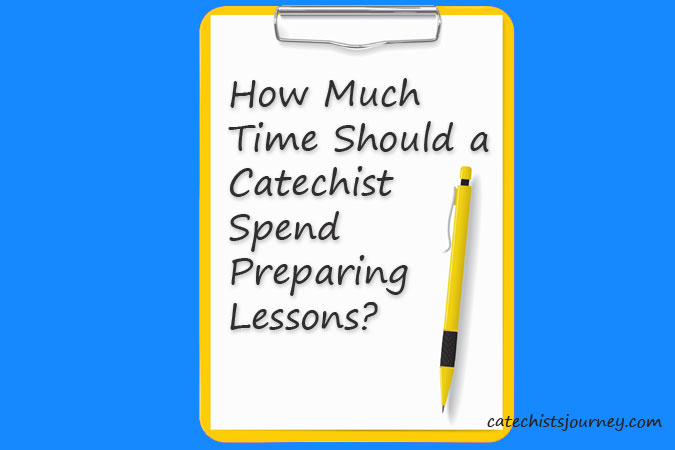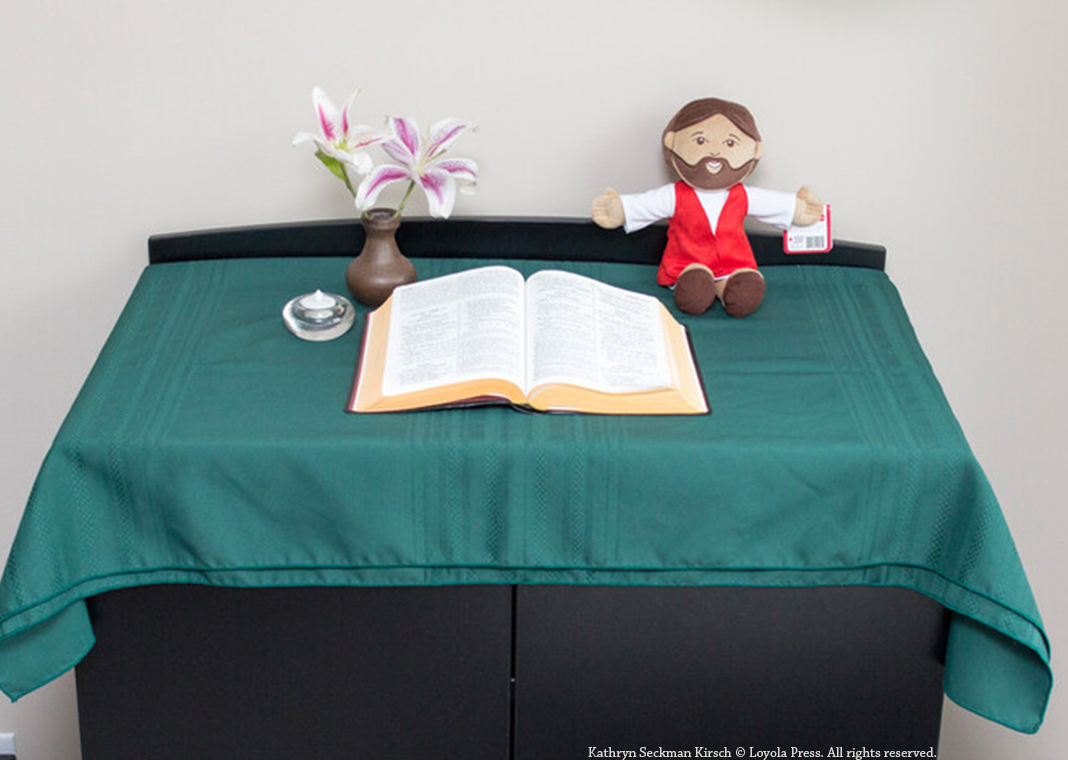
I recently received an e-mail from a veteran catechist asking how much time catechists should put into planning their lessons. She had been using a textbook from another publisher for 10 years but was now using Finding God: Our Response to God’s Gifts from Loyola Press and was struck by the realization that she was being asked, not just to transmit information, but to facilitate a transformation of those she teaches. Here’s my reply to her:
Hi Bridget!
I received your e-mail about the challenge you are facing with your fifth-grade class now that you have moved to the Finding God program. First and foremost, thanks for your dedication to doing the best for your students over these past 10 years. What dedication! Second, welcome to the Finding God program from Loyola Press, a program that I helped to develop. Finding God is a rich program that invites young people to experience an encounter with Christ, not just learn information about him. As such, it appears to be more challenging. In a sense, it is, because it is asking you as a catechist to do much more than guide children through reading a book. At the same time, however, it is a very simple four-step method: Engage, Explore, Reflect, and Respond. This method creates a flow to your lesson and imitates how God reveals himself to us (Divine Pedagogy).
In terms of how much time to spend preparing for a lesson, I have always advocated catechists spending between one and two hours to prepare. Many catechists try to reserve an evening or some time on the weekend for their preparation. Having said that, I’m sure that you’re not just concerned with “putting in your time” but rather with preparing effective lessons. If there is any part of the Finding God lessons that you are having difficulty with, please do not hesitate to get in touch with me or your Loyola Press Educational Consultant, and we will be more than happy to assist you in getting a better grasp of the Finding God approach. In addition, here is a link to an archived webinar I gave on teaching children of intermediate grades. That should be helpful for you in grasping the four-step method I mentioned above.
I hope this is helpful, Bridget. Please do not hesitate to follow up if you have any questions. Thanks again for your wonderful service to God’s children!
Blessings,
Joe Paprocki
National Consultant for Faith Formation
There is no magic formula to planning lessons, and there is no set amount of time required to prepare an effective lesson. Some lessons “plan themselves” and take little time to prepare, while others can take much longer to prepare and organize. Here’s a link to a great post by Denise Gorss that describes her planning process.
How much time do you put into your planning? What tips can you offer?





Hi Joe,
I think your guideline of at least 1-2 hours of prep time per lesson is good. The article you linked to from Denise Gorss provides an excellent framework. From my own experience, I put a good amount of time into planning and preparing for the activity(ies) which will be used, as that is where I find that many of the “aha” moments of spiritual growth take place. I also spend a lot of time studying the discussion questions in the lesson plan, and adding follow-up and prompting questions/clues. Again, getting the youth talking and asking their own questions is so important to enabling the “encounters” with Jesus and His personal message/plan for each of the youth.
There is another very important need here, which goes beyond lesson preparation and gets to the heart of the role of the Catechist – the spiritual formation of the Catechist. The role of a Catechist in enabling encounters with Jesus and evangelizing the youth (and their parents) is an awesome responsibility and challenge. What the DRE and Parish does to provide for the ongoing spiritual growth of their Catechists is so important! I know you and the other Loyola Press contributors have written several great articles on this topic.
Thanks for what you do to support us!
I would hope that a catechist lives their lesson through out the week. I think and pray over the topic each week. Our faith is a lived faith. One can not just put in their time and forget about it. We need to listen to the Holy Spirit. 41 years of catechesis.
Hi Julie,
Wow! 41 years a catechist! I’m sure you have some great stories to tell. And you’re absolutely right about our faith being a lived faith.
Denise
To Joe Denise Gorss Mary Dillman all of those who work so hard and so hard to help us catechists become the best versions of ourselves to prepare our candidates
to recieve the Sacrament of Confirmation in April. Again to all of you from the bottom of my heart Sharing all of your ideas and solutions is what makes us catechist who we are and and what we are meant to be Thanks Denise Perrone
From one Denise to another, you’re welcome! Please do share your ideas with us throughout the year.
What ice breaker can I use for my first class of k and 1st graders